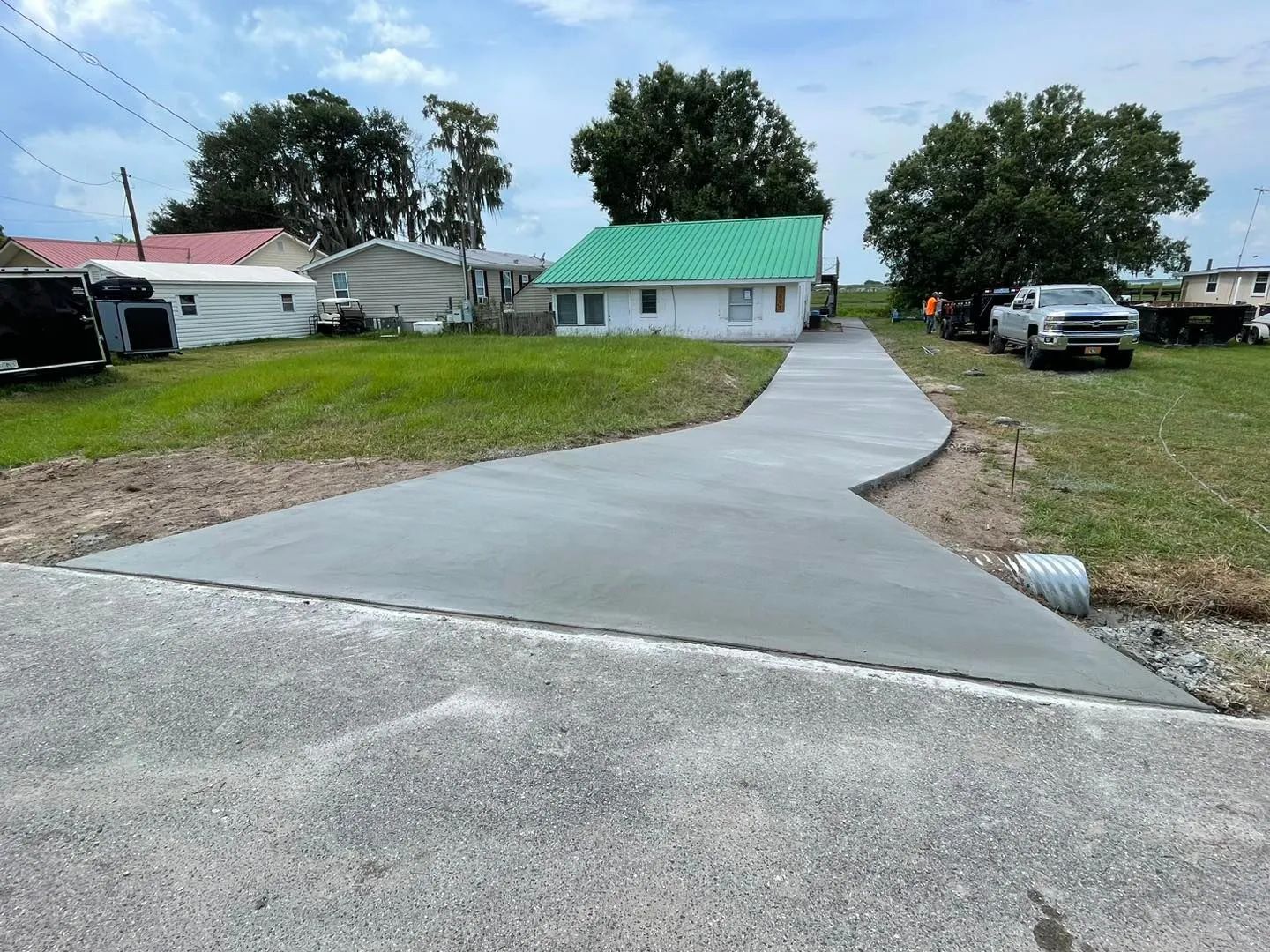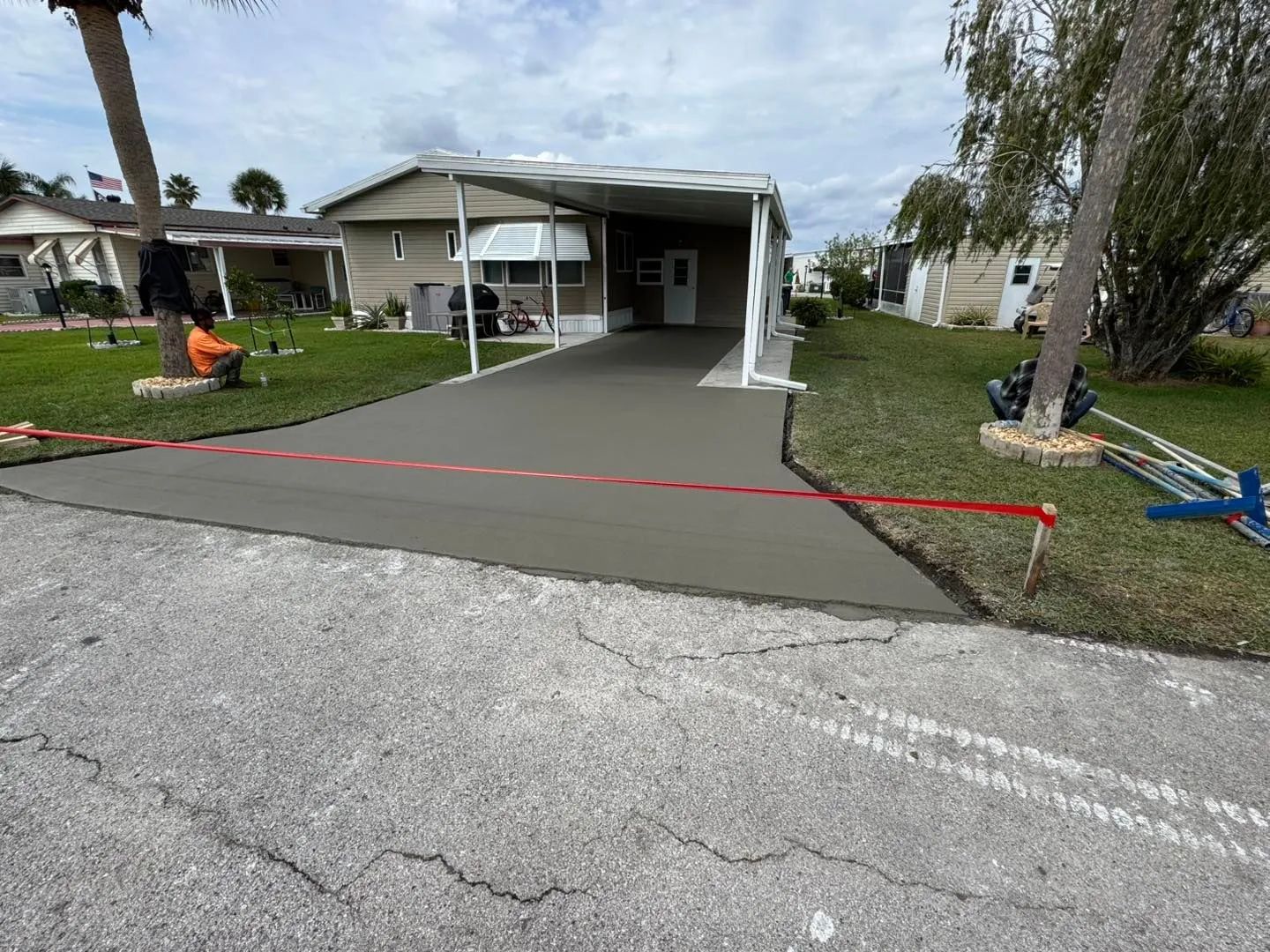How to Choose Between Concrete and Pavers for Your Patio
Designing the perfect patio starts with choosing the right foundation, and for many homeowners, the decision comes down to concrete or pavers. Both offer unique advantages in terms of cost, appearance, maintenance, and durability. If you’re trying to decide between these two popular options, it’s important to understand how each performs and aligns with your patio goals. Here’s a breakdown to help you make the best choice for your outdoor space.
Cost and Installation
When it comes to upfront costs, concrete is typically the more budget-friendly option. Poured concrete patios require less labor and materials, making them ideal for large spaces or tighter budgets. Installation is relatively quick, often completed in a couple of days, depending on the weather and site prep.
Pavers, on the other hand, are more labor-intensive to install. Each unit must be laid individually over a properly graded base. However, the added effort and cost can be worth it if you're looking for design flexibility and a more high-end look. Though initial costs are higher, some homeowners find the long-term value and durability worth the investment.
Aesthetic Options
Concrete offers a smooth, uniform surface and can be enhanced with stamping, staining, or scoring for added appeal. These finishes can mimic the look of natural stone, tile, or brick, but they still won’t match the texture and depth of real pavers.
Pavers come in a wide range of shapes, colors, and materials, including brick, concrete, and natural stone. This variety allows for highly customizable designs, from classic to modern. Whether you want a sleek geometric pattern or an organic, rustic look, pavers offer more creative freedom and curb appeal.
Durability and Repairs
Both concrete and pavers are durable, but they behave differently over time. Concrete is a single slab, so it’s more susceptible to cracking due to soil movement or temperature changes. While these cracks can be repaired, the fixes are often visible and may not match the original surface perfectly.
Pavers are more flexible because they consist of many individual pieces with joint sand in between. This allows them to expand and contract without cracking. If damage occurs, replacing a single paver is much easier—and less noticeable—than repairing a slab of concrete.
Maintenance and Longevity
Concrete patios require occasional sealing to maintain their appearance and prevent staining or surface damage. Over time, weather and wear can cause fading and cracks that may require patching or resurfacing.
Pavers are generally easier to maintain in the long term. Regular sweeping and occasional power washing keep them looking fresh. Weeds may grow between joints if not properly sealed or maintained, but this can be managed with joint sand or weed inhibitors. Pavers can also last several decades with proper care, making them a durable and attractive option.
Making the Right Choice for Your Home
Choosing between concrete and pavers ultimately depends on your priorities—whether that’s budget, design flexibility, maintenance needs, or long-term value. Concrete may suit you if you want a quick, affordable solution with simple aesthetics. Pavers are the better fit if you're after a customizable look, easier repairs, and lasting durability.
If you’re ready to upgrade your patio, AR Gator in Lake Wales, FL, is here to help. With
15+ years of experience, we offer expert guidance and installation services to bring your outdoor vision to life. Contact us today to explore the best options for your space and get a free estimate!



